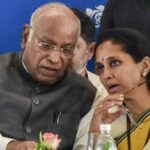Relationships often come with their own set of surprises, and sometimes, one partner has to take the lead in making things happen.
once revealed that she was the one who actively pursued at the beginning of their relationship. In an old episode of, the actor admitted that she had to put in quite an effort to get Shahid’s attention.
asked, “Do you remember how it all started? Anything interesting to how he proposed to you or asked you out?”
“He did not even bother, for two months I had to chase him. I was the one who was initiating SMSs, calls, asking him to meet… He was kind of shy and finally we met up and things started, but it was me who made the first move and accelerated the relationship,” Kareena said, with Shahid sitting next to her on the couch.
This challenges traditional dating norms, where men are often expected to make the first move. But how do such dynamics shape a relationship in the long run?
Sonal Khangarot, licensed rehabilitation counsellor and psychotherapist at The Answer Room, discusses how taking the lead in a relationship affects , the role of personality types in romantic connections, and whether persistence in love is always a good thing.
“When one person takes the initiative in pursuing a romantic relationship, it can set an early pattern for how power is distributed. In some cases, the partner who leads may unconsciously take on a dominant role in decision-making, emotional labor, or relationship maintenance. This isn’t inherently negative — many relationships thrive with a proactive and . However, if the pursuit continues to be one-sided beyond the initial phase, it may create an imbalance where one partner feels like they are always putting in more effort while the other assumes a more passive role,” Khangarot explains.
Over time, such an imbalance can lead to dissatisfaction.
“The pursuer may start feeling underappreciated, while the pursued partner may feel pressured into a relationship dynamic they never fully initiated. That said, if both partners naturally settle into roles they are comfortable with — where one is the initiator and the other is more receptive — the relationship can still function healthily. The key is ensuring mutual respect and a willingness to invest equally over time,” she adds.
Kareena mentioned that Shahid was “kind of shy,” which hints at a classic extrovert-introvert dynamic in relationships.
“Extroverts, like Kareena, tend to be more expressive, proactive, and comfortable initiating conversations, dates, or even direct romantic pursuits. Introverts, on the other hand, might take more time to open up, preferring deeper, one-on-one connections rather than grand romantic gestures,” says Khangarot.
This difference often shapes how relationships begin and evolve.
“In many cases, extroverts may feel frustrated if their isn’t as forthcoming with expressions of love or emotional availability. Conversely, introverts may feel overwhelmed by an extrovert’s intensity or pressure to match their level of enthusiasm. If managed well, this contrast can lead to a complementary dynamic. However, without mutual understanding, it can lead to misunderstandings or feelings of emotional mismatches,” she explains.








